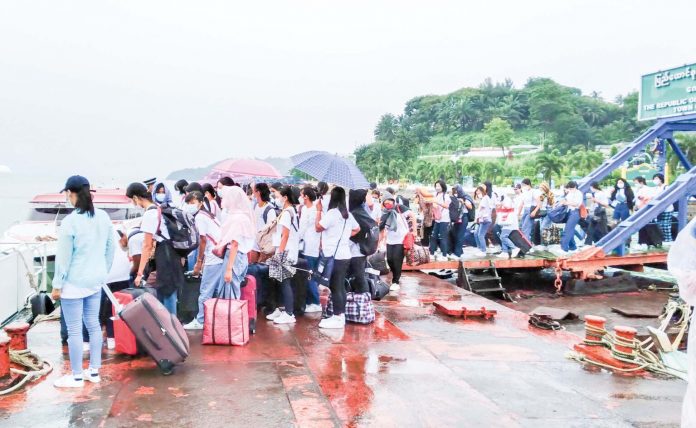The Myanmar Overseas Employment Agency Association (MOEAA) has notified overseas employment agencies that new demand letters for migrant workers will only be accepted after the existing waiting lists are cleared, an agency owner told DVB. The MOEAA is a non-governmental body that coordinates with the regime Ministry of Labour.
“We don’t know how long it will take. I don’t think there are many opportunities for new workers,” said the agency owner on the condition of anonymity. A demand letter is an official document issued by a foreign employer, or recruitment agency, requesting a specific number of workers from Myanmar to fill job vacancies abroad.
Regime-controlled embassies in foreign countries verify the letters and submit their findings and remarks to the Ministry of Labour in Naypyidaw through the Ministry of Foreign Affairs. Local overseas employment agencies can submit a request to the Ministry of Labour for demand letters that allow them to recruit.
According to overseas employment agencies, nearly 70,000 workers that have signed employment contracts are waiting to receive their Overseas Worker Identification Cards (OWIC) as the process is scheduled to resume on March 20 after a month-long hiatus.
Under the 1999 Foreign Employment Law, migrant workers must hold an OWIC with a five-year term to travel for overseas employment. The Ministry of Labour keeps detailed information about the OWIC holder.
Although the OWIC application process can be done within a day, migrant workers are required to apply for permission from the Department of Labour online at least five working days before departure, which began on March 17.
The MOEAA notice further stated that the number of demand letters each local overseas employment agency in Myanmar can submit after Jan. 30 will be limited and agencies will be notified about the number of workers they are allowed to recruit later.
The civilian-led alternative to the regime in Naypyidaw, the National Unity Government (NUG), announced that it had abolished the MOEAA on Feb. 5, 2024 for its “cooperation” solely with the ministry under regime control.



